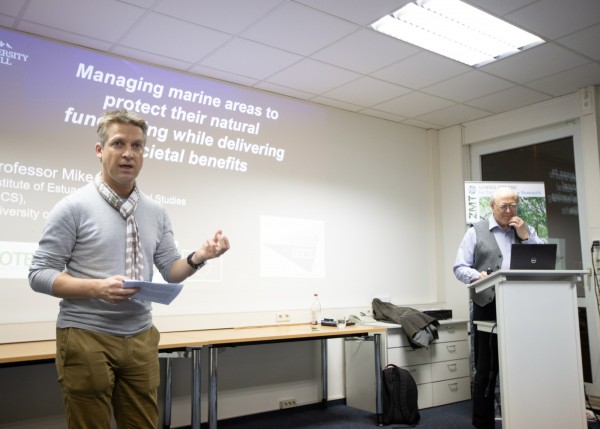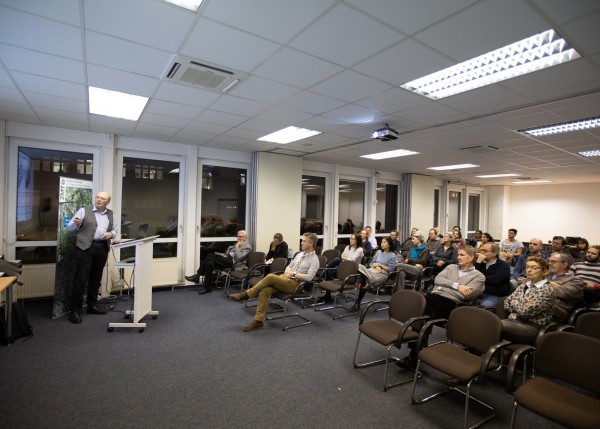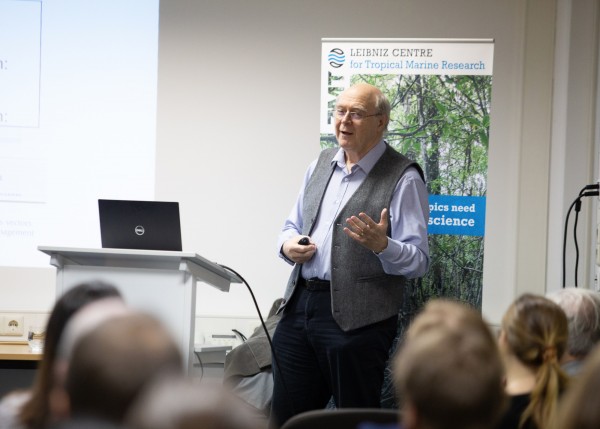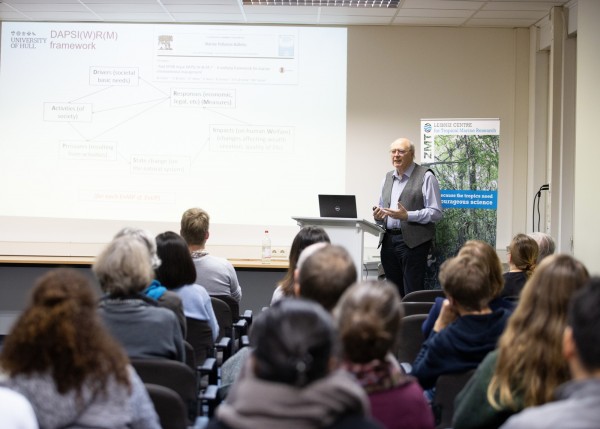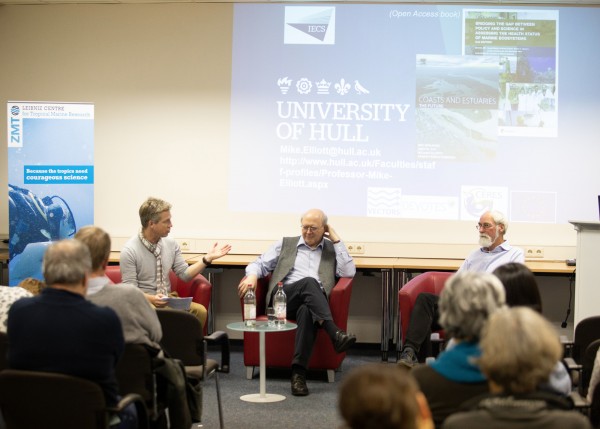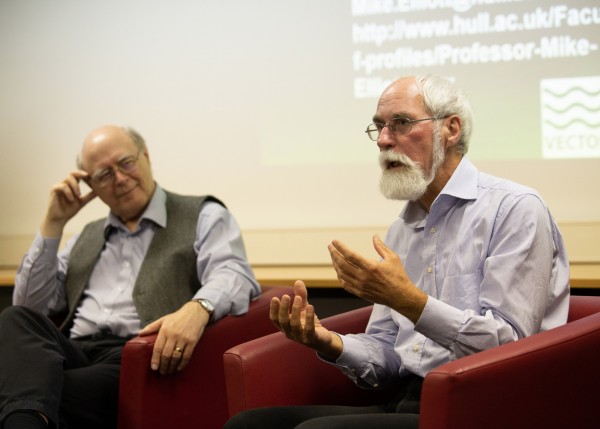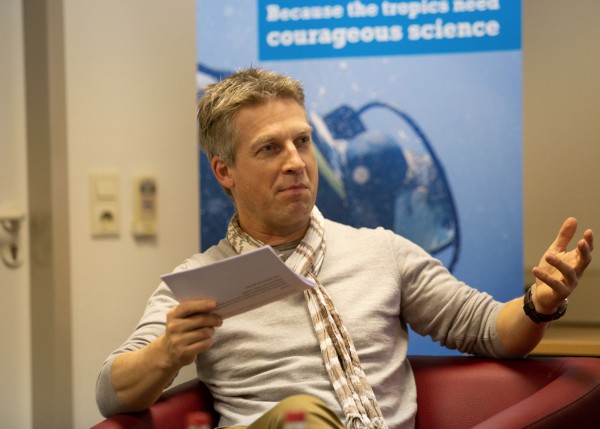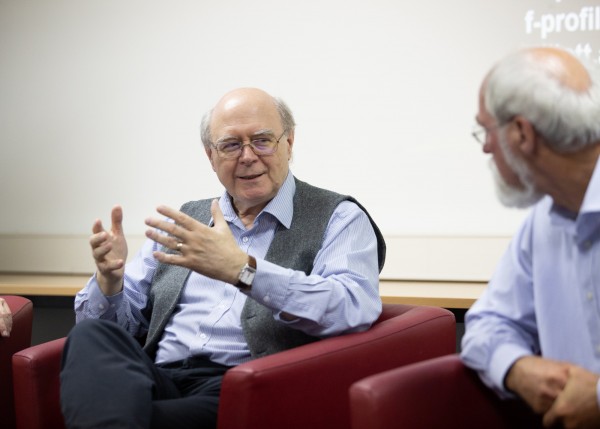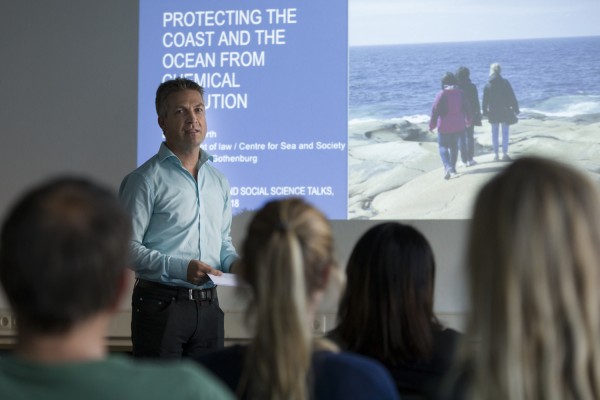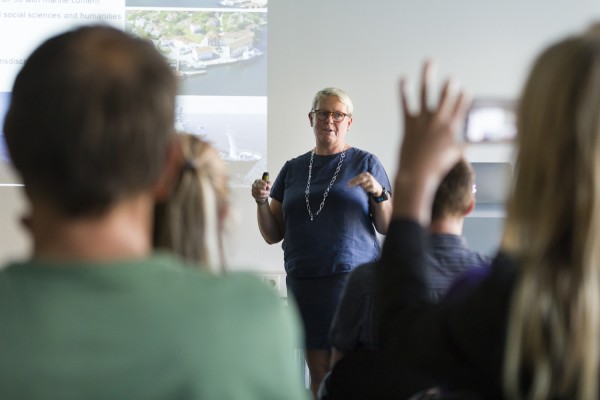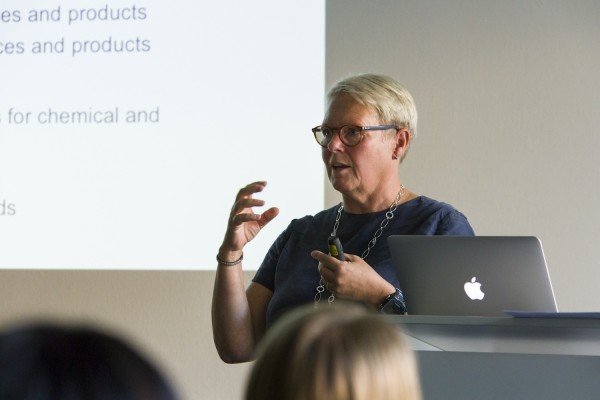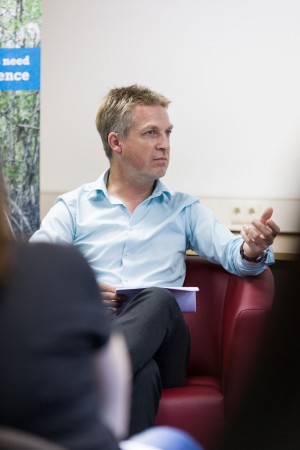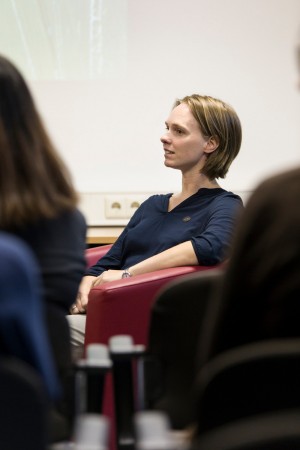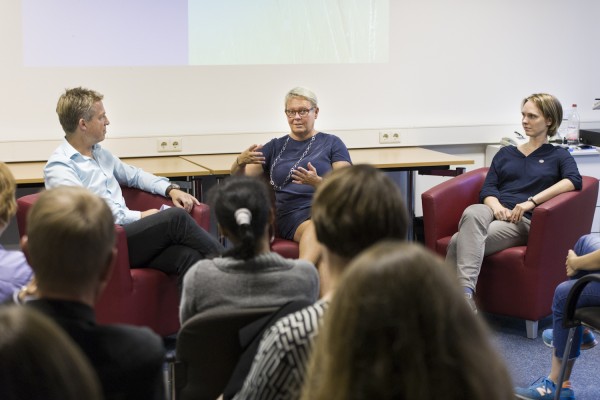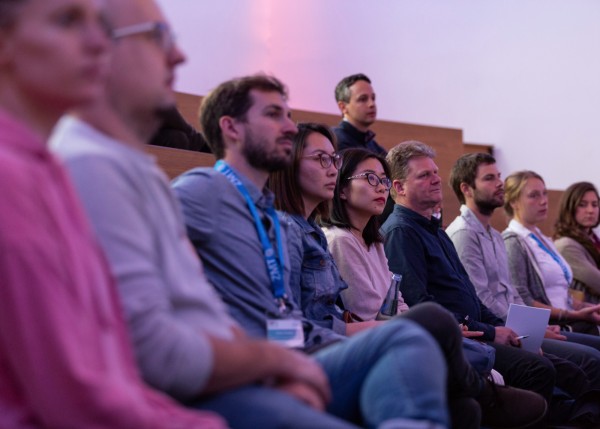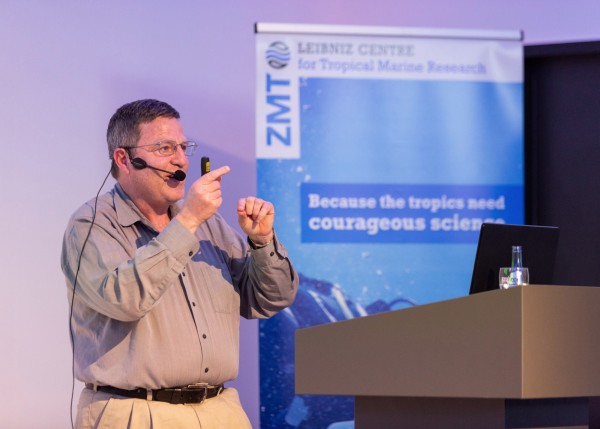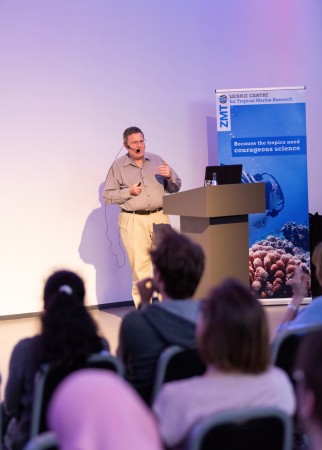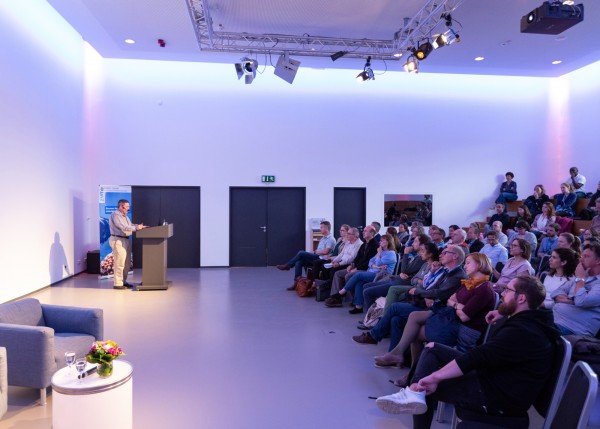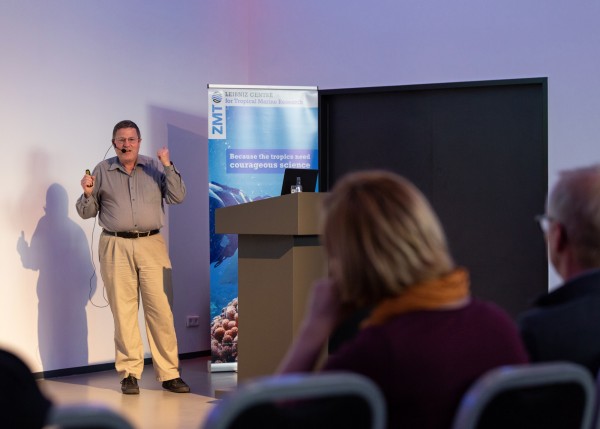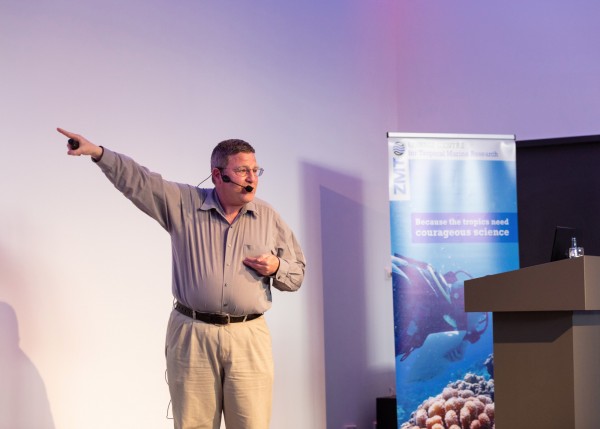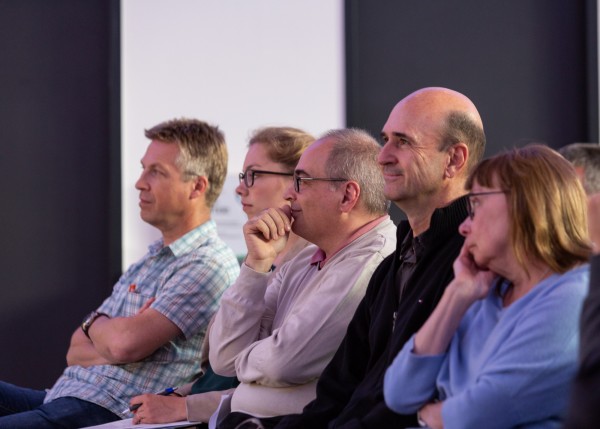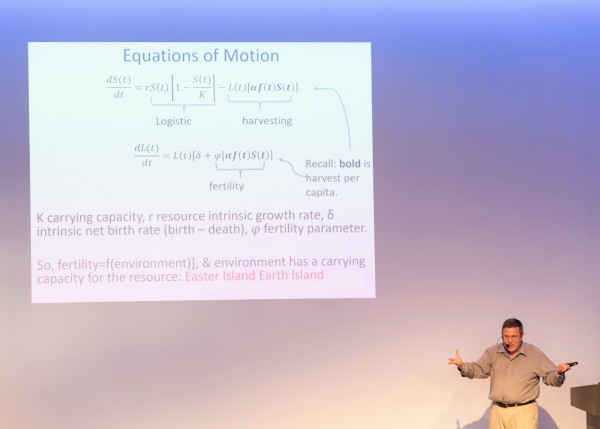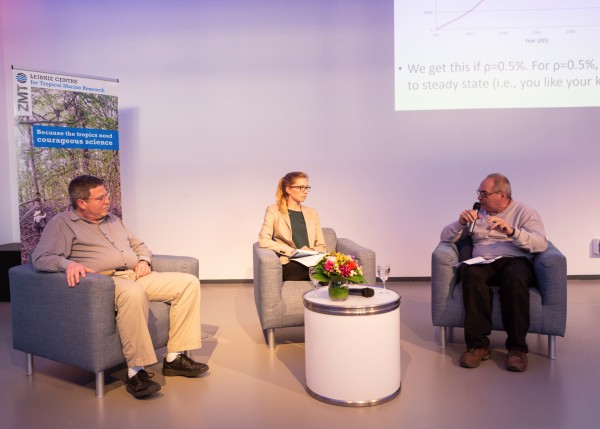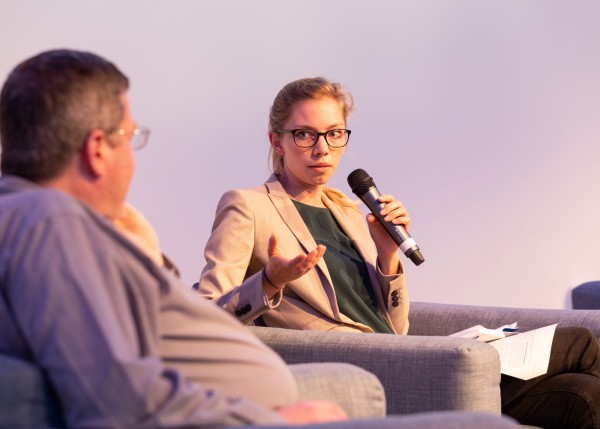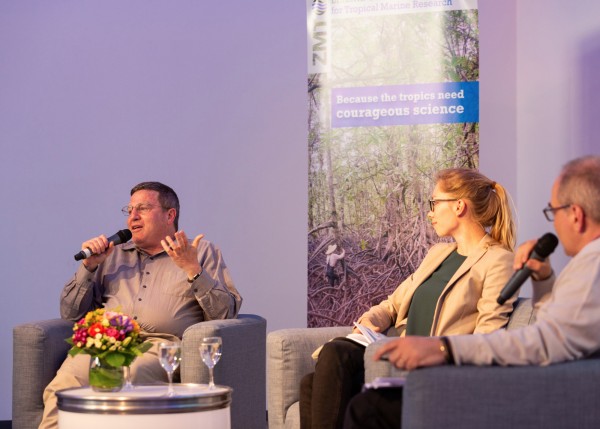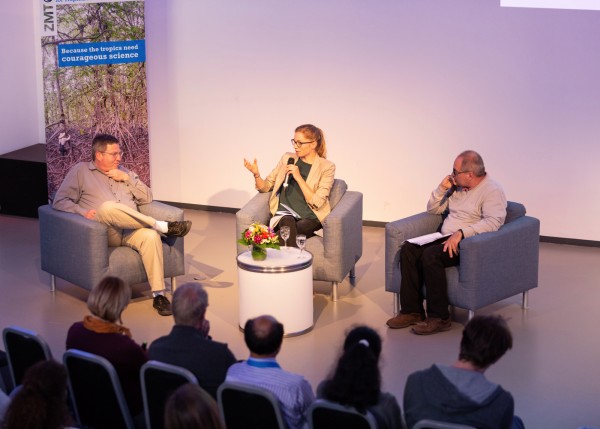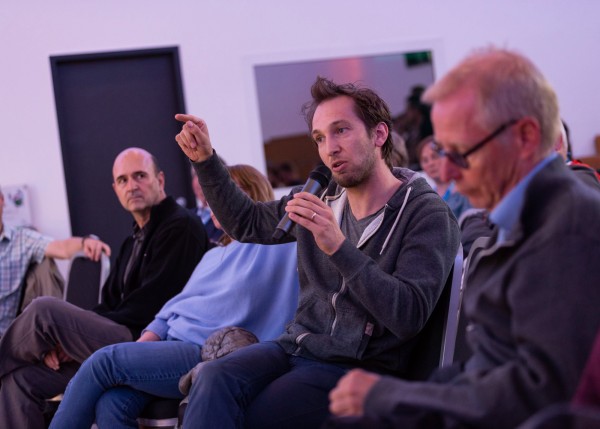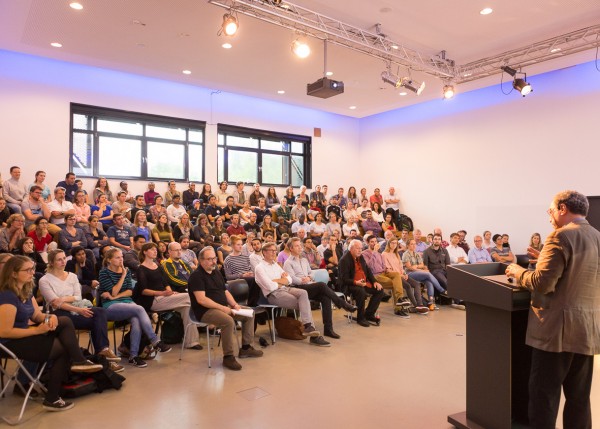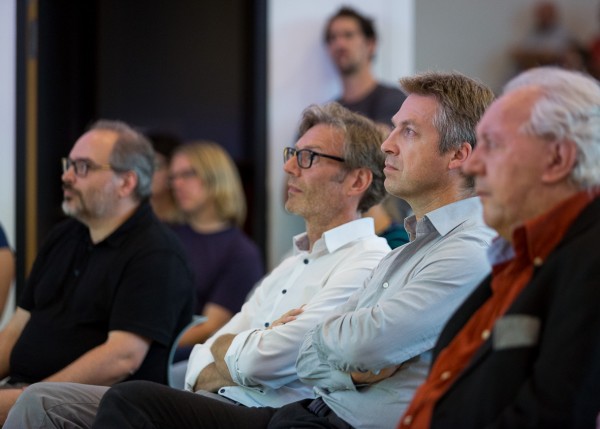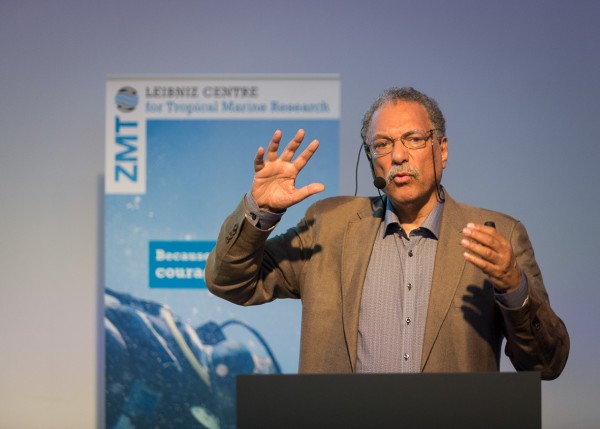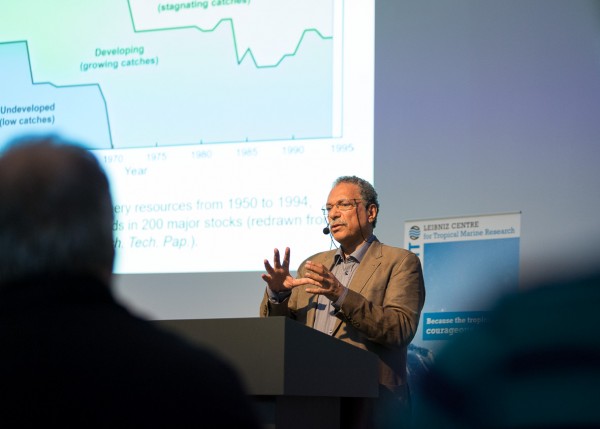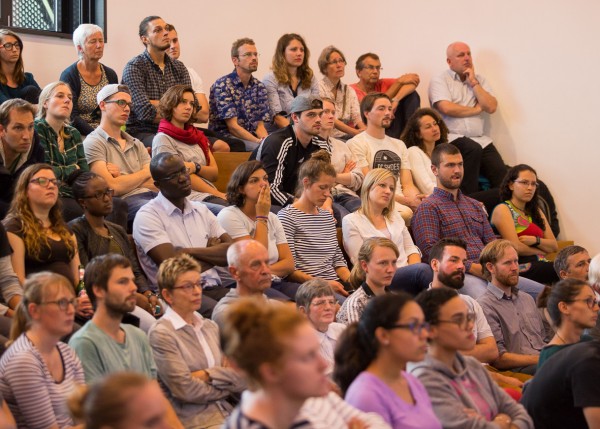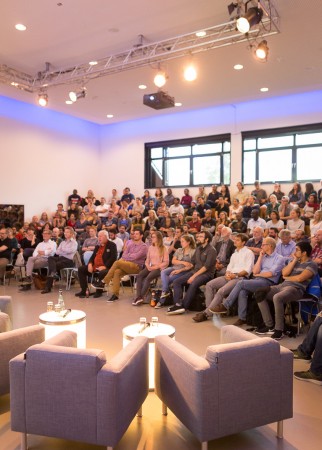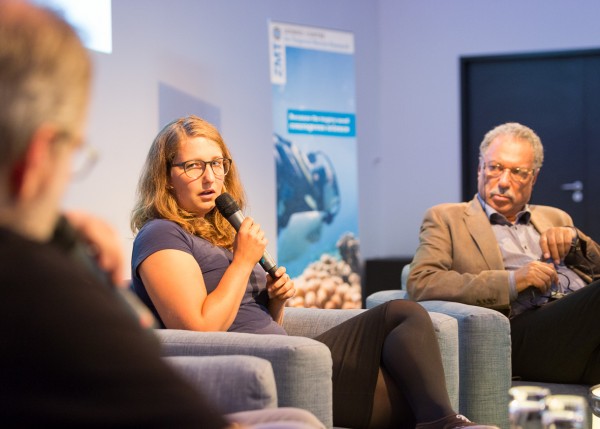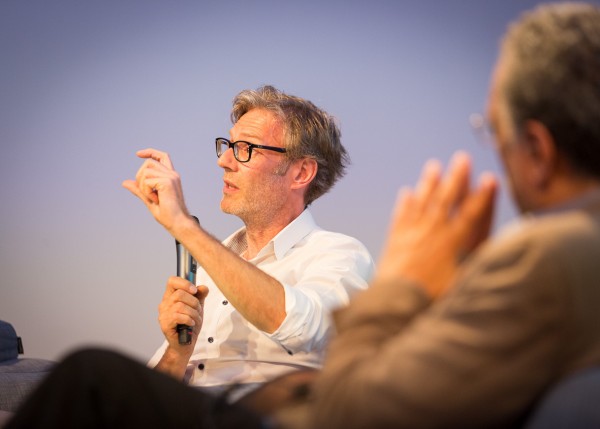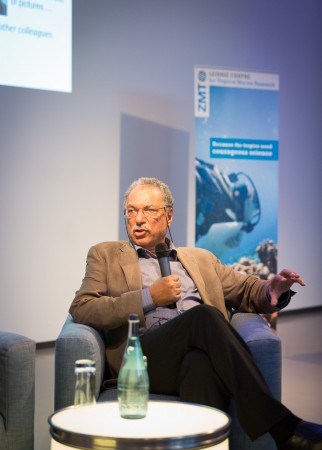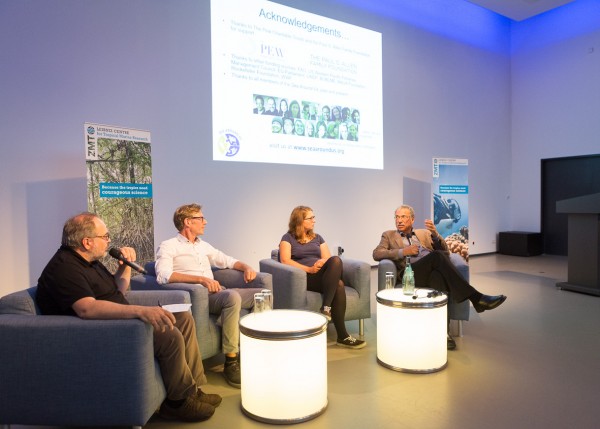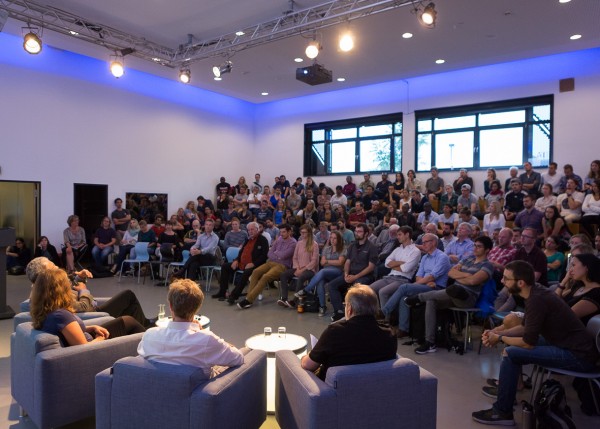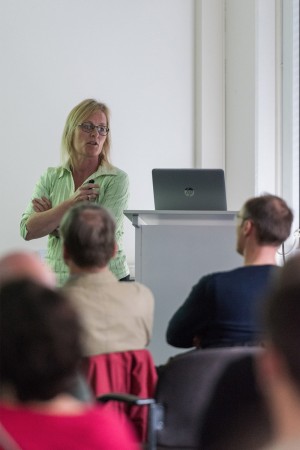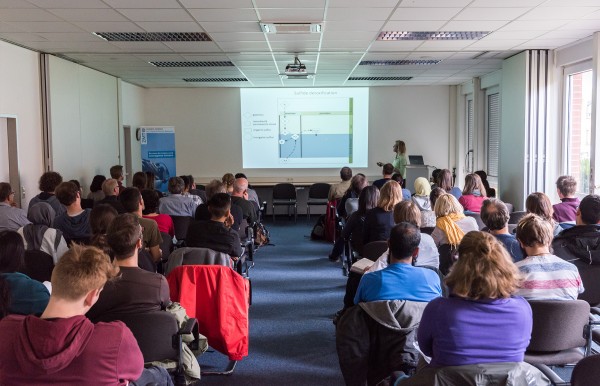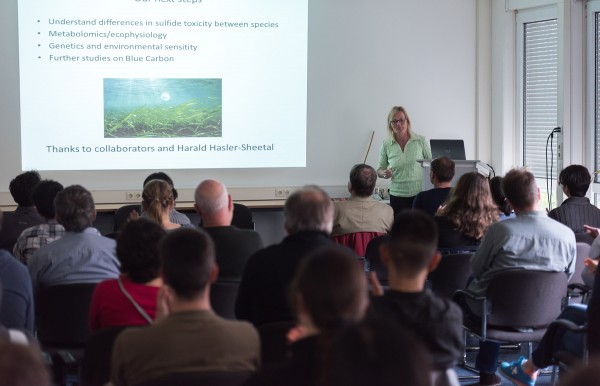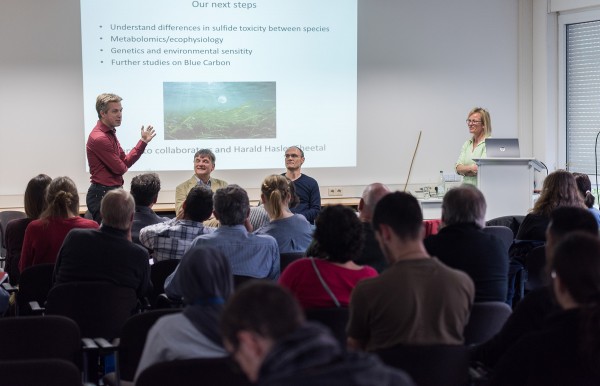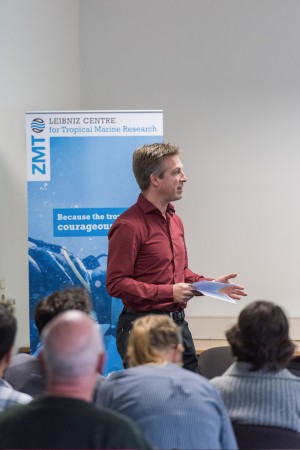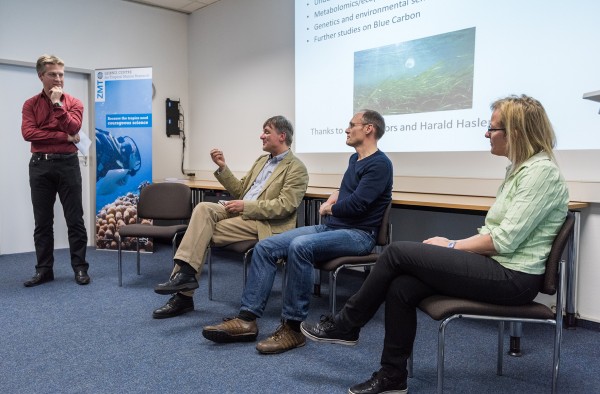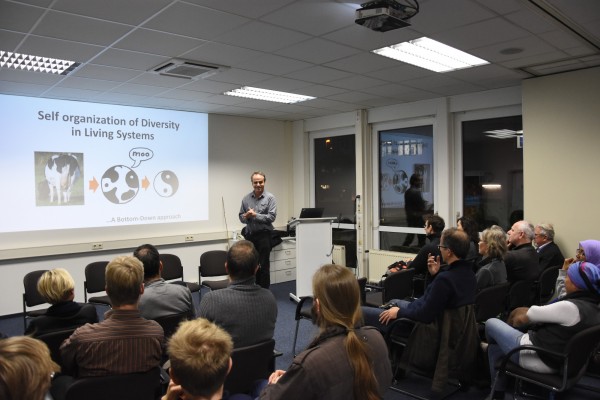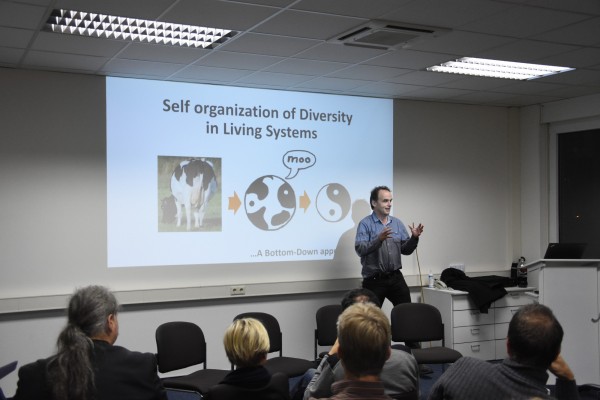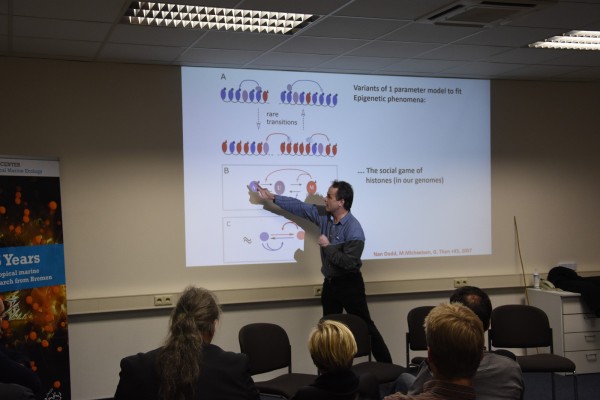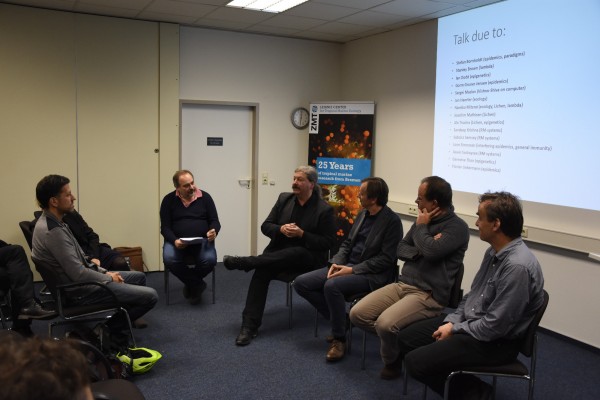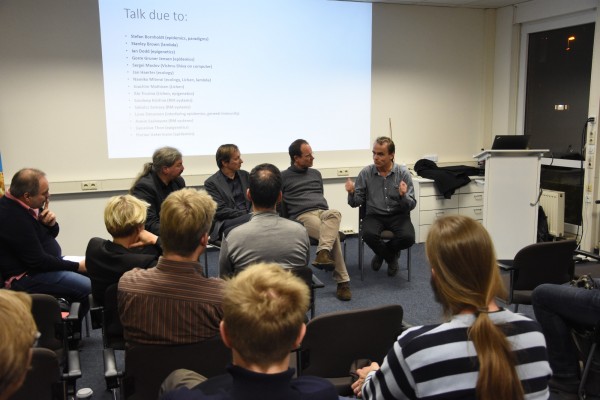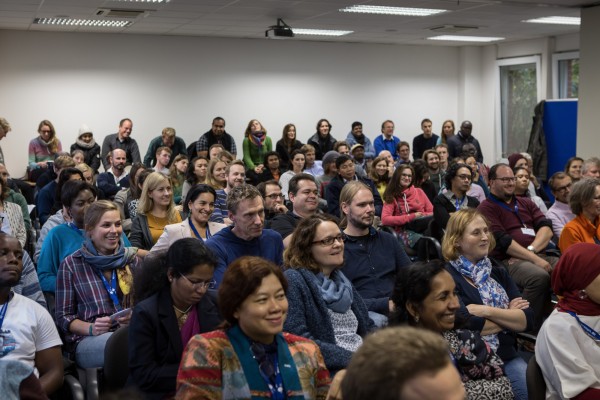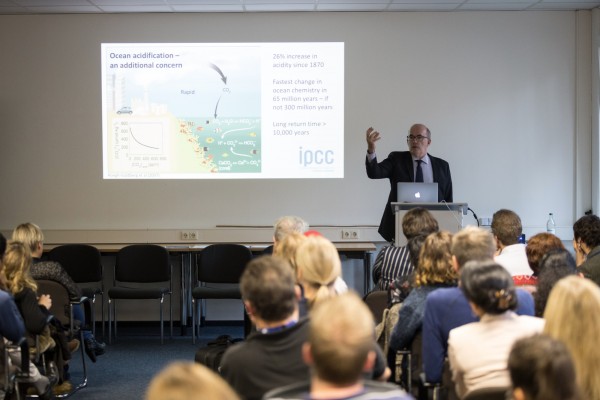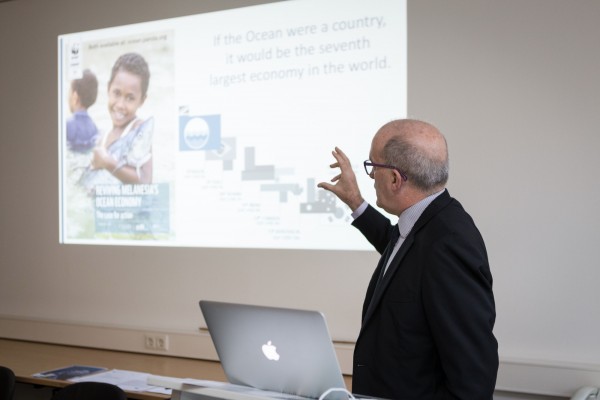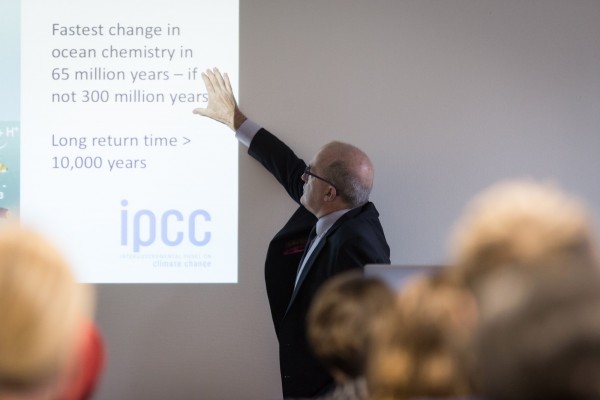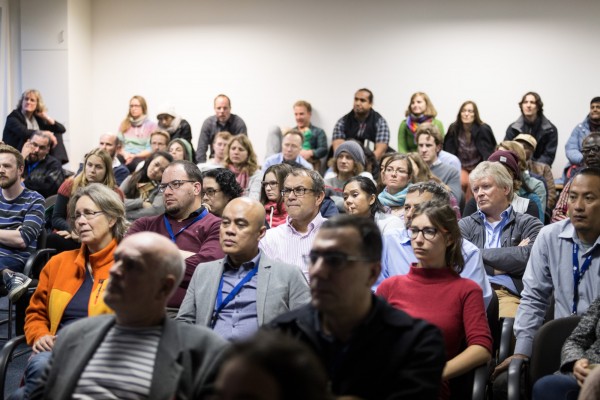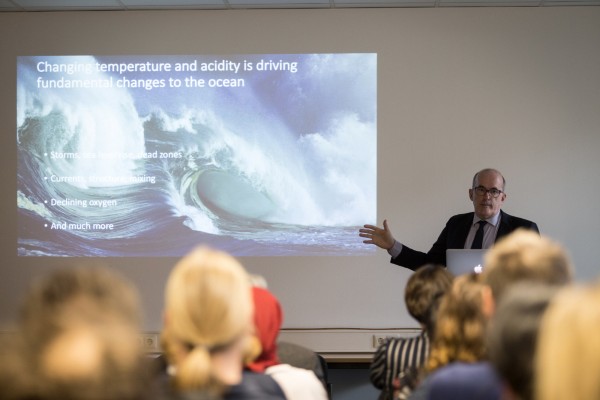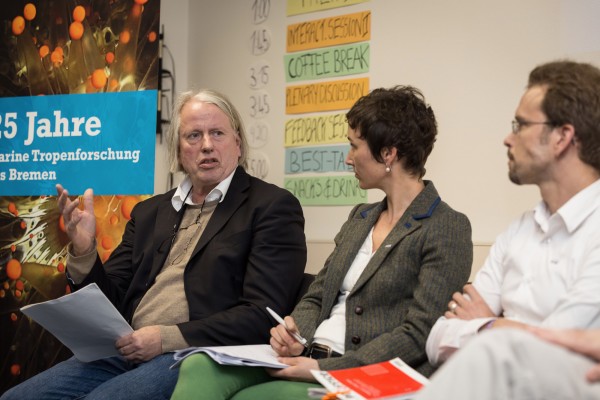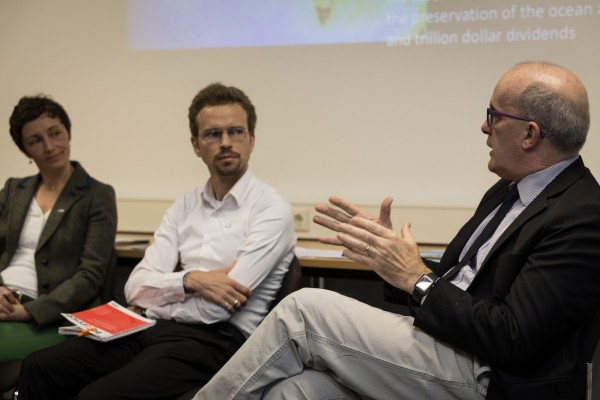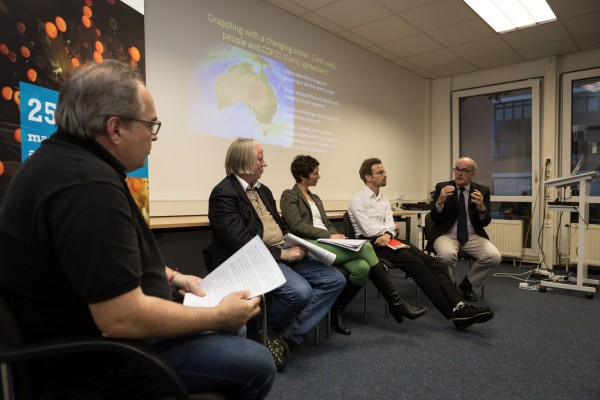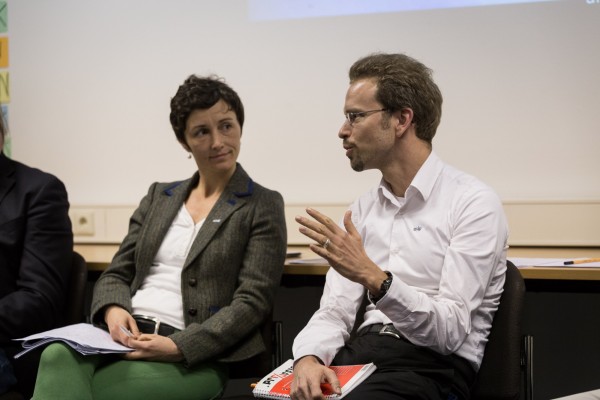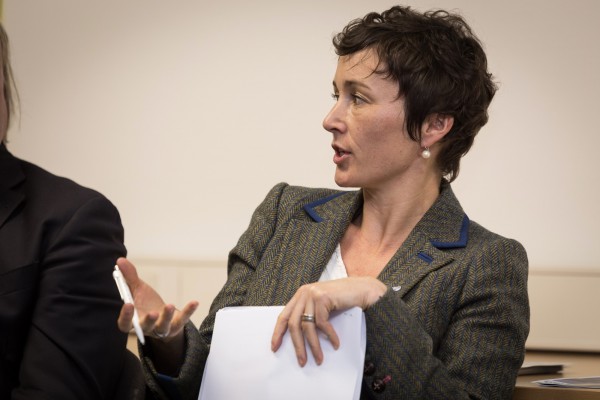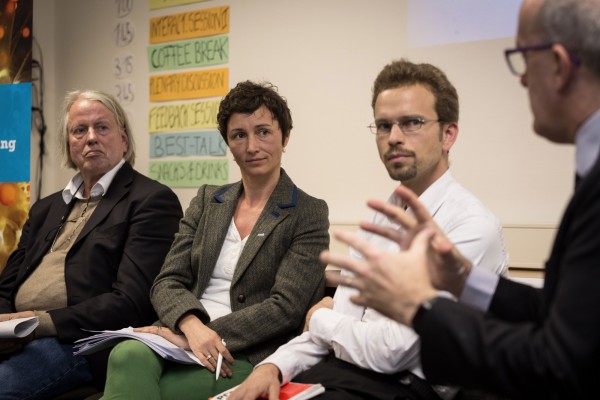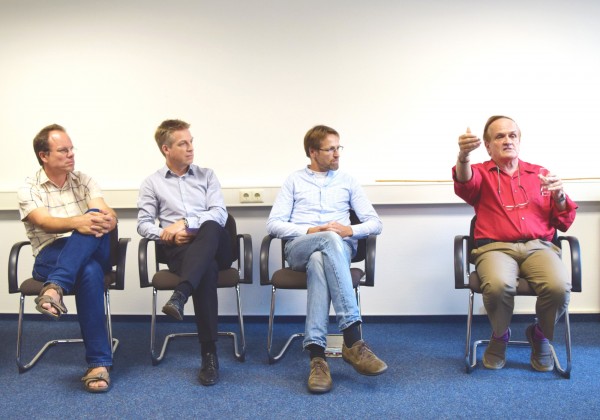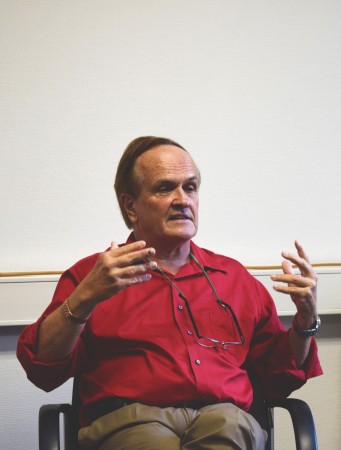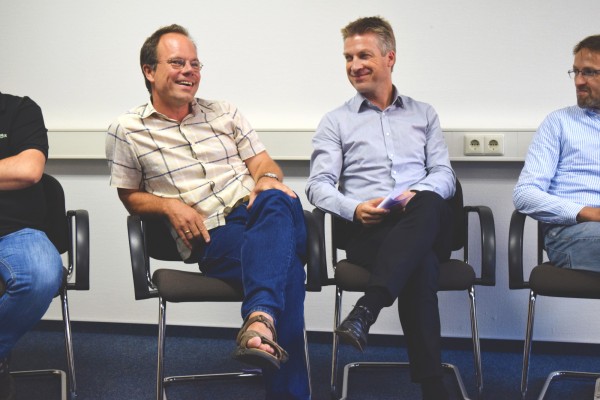(Text nur auf englisch verfügbar)
The Bremen Earth and Social Science Talks (BEST) aim to attract engaging and influential speakers from the world of academia to Bremen to share their thoughts and ideas.
The purpose of the series is to provoke discussion and debate about a range of subjects at the intersections between natural and social sciences, with a focus on pressing societal grand challenges such as sustainability, climate change, resource exploitation, and governance.
The 45-minute lectures are followed by a discussion of about 45 minutes and are delivered at a level that is accessible to a general scientific audience.
The Bremen Earth and Social Science Talks (BEST) are held in the large seminar room (ground floor) of the Leibniz Centre for Tropical Marine Research (ZMT), Fahrenheitstraße 6, 28359 Bremen.
The talks are free and open to the public, reservation is not necessary.
Programme for academic year 2018-2019
Thursday, June 20, 2019, 17:00-18:30, ZMT seminar room
The challenges of applying science to nature-based coastal protection
by Iris Möller
Dr. Iris Möller received her Ph.D. in Geography 1997, for a doctoral dissertation on ‘Wave attenuation over saltmarsh surfaces’ at the University of Cambridge. After a short spell of working at HR Wallingford Ltd, she joined the University of Cambridge’s Coastal Research Unit as a Research Associate and Deputy Director. She took up a Full-Time College Lectureship in Physical Geography at Fitzwilliam College of the University of Cambridge in 2000. Since 2014, she has held a University Lectureship in Physical Geography (Coastal Processes) at the Department of Geography, alongside continuing her role as Deputy Director of the Cambridge Coastal Research Unit. As an internationally recognised scholar, Dr Möller researches complex shallow coastal environments with a strongly applied focus on improving coastal flood and erosion risk management. She has over 40 peer-reviewed publications in international journals and is currently the Principal Investigator on ten and Co-Investigator on three collaborative research grants. Her 2013 true-to-scale experiment on the natural protection provided by salt marsh vegetation has been described by a reviewer as “just mind blowing and the results therefore unique and of incredible importance”.
Panel discussion with Sascha Klöpper:
Deputy Executive Secretary of The Common Wadden Sea Secretariat (CWSS)
https://www.waddensea-secretariat.org/trilateral-cooperation/common-wadden-sea-secretariat
Moderation:
Dr. Tim Jennerjahn
Programme for academic year 2017-2018
Thursday, December 6, 2018, 17:00-18:30, ZMT seminar room
Managing estuarine and marine areas to protect their natural functioning while delivering societal benefits
by Mike Elliott
Mike Elliott is the Professor of Estuarine and Coastal Sciences at the University of Hull, UK. He is a marine biologist with wide experience and interests including estuarine and marine ecology, policy, governance and management. He has published widely and has advised on many environmental matters for academia, industry, government and statutory bodies worldwide. He is a past-President of the international Estuarine & Coastal Sciences Association (ECSA) and is a Co-Editor-in-Chief of the international journal Estuarine, Coastal & Shelf Science; he has Adjunct Professor and Research positions at universities in Europe, Asia and Africa. Professor Elliott is also a member of several national and international committees linking marine science to policy.
Panel discussion with Prof. Dr. Karsten Reise:
Karsten Reise is a Professor emeritus at the University of Kiel who led the Wadden Sea Station Sylt of the Alfred Wegener Institute, Helmholtz Centre for Polar and Marine Research, for a long time. He is a biologist and an engaged environmentalist who almost spent his lifetime in science on studying and protecting the Wadden Sea and he contributed significantly to the efforts of making it a UNESCO World Heritage Site. Professor Karsten Reise is currently studying the response of coastal seas to invasive species and providing concepts for the adaptation to and mitigation of outcomes of sea level rise of low-lying northern Germany.
Moderation:
Dr. Tim Jennerjahn
Thursday, September 20, 2018, 17:00-18:30, ZMT seminar room
Protecting the coast and the ocean from chemical pollution
by Lena Gipperth
Lena Gipperth is a Professor in Environmental Law at the School of Business, Economics and Law, University of Gothenburg. Her research focuses on the legal implementation of environmental objectives, in particular relating to water and marine resources. She has been involved in several trans- and multidisciplinary research programmes and is now a part of the FRAM Centre for Future Chemical Risk Assessment and Management Strategies (https://fram.gu.se). Since 2015 she is the Director of the cross-faculty Centre for Sea and Society, an entrance to all marine and maritime activities at the University of Gothenburg.
Panel discussion:
Dr. Berit Brockmeyer
Dr. Berit Brockmeyer is head of the section “Environmentally hazardous substances” in the Department “Marine Sciences” (sub department “Chemistry of the Ocean”) at the Federal Maritime and Hydrographic Agency (BSH). Her tasks include monitoring pollutants in water and sediments from the North Sea and the Baltic Sea as well as research into the detection of pollutants.
Moderation:
Dr. Tim Jennerjahn
Thursday, May 17, 2018, 19:00-20:30, Venue: Universum® Bremen, Wiener Straße 1A, 28359 Bremen
Historical Social Collapse
by Rafael Reuveny
Rafael Reuveny is professor at the School of Public and Environmental Affairs, Indiana University, Bloomington, Indiana, USA. His research centers on the collapse of historical societies, migration associated with climate change, health impacts of climate migration, and causes of collective violence. He is author of many articles and books. He was programme chair of the meetings of the Global International Studies Conference in Ljubljana, Slovenia. He won two teaching awards at Indiana University and is the co-recipient of the 2007 Award of Excellence in World Society Research, from the World Society Foundation, Zurich. Professor Reuveny is also expert in the political economy of the Middle East.
Panel discussion:
- Dr. Johanna Wehkamp, Mercator Research Institute (MCC), Berlin
Moderation:
Prof. Dr. Agostino Merico, Systems Ecology (ZMT)
Programme for academic year 2016-2017
Thursday, June 29, 2017, 19:00-20:30, Venue: Universum, Wiener Str. 1a, Bremen
Impact of Fisheries and Global Warming on Marine Ecosystems
by Daniel Pauly
Daniel Pauly is University Killiam Professor at the Institute of Oceans and Fisheries, University of British Columbia, Canada, and Principal Investigator of the Sea Around Us. He has devoted his life to studying, documenting and promoting policies to mitigate the impact of fisheries on the world’s marine ecosystems. The concepts, methods and software he developed are documented in over 1,000 publications, which received more than 60,000 citations. His work has been recognized by numerous awards, notably the International Cosmos Prize, Japan, the Volvo Environmental Prize, Sweden, the Ramon Margalef Prize from the Government of Catalonia and the Peter Benchley Award.
Panel discussion:
Dr. Gerd Kraus, Director Thünen-Institute of Sea Fisheries
Mrs. Valeska Diemel, Director of Black Fish Germany
Moderation:
Prof. Dr. Agostino Merico, Systems Ecology (ZMT)
Tuesday, April 25, 2017, 17:00-18:30, ZMT seminar room
Seagrass global crisis – how to survive exposure to hypoxia and sulfide
by Marianne Holmer
Marianne Holmer is professor at the Department of Biology at University of Southern Denmark. Her research interests are in marine plant ecology and sediment biogeochemistry with particular interests in understanding ecosystem level dynamics of plants communities in response to resource, stress and disturbance gradients. Current research focuses on seagrass response to biogeochemical changes in temperate and tropical seagrass meadows in response to anthropogenic and natural disturbances. She has been head of department since 2010.
Panel discussion:
Mr. Tim Schröder, Science Journalist
Prof. Dr. Dieter Hanelt, Aquatic Ecophysiology and Phycology, University of Hamburg
Moderation:
PD Dr. Tim Jennerjahn, Ecological Biogeochemistry (ZMT)
Thursday, November 17, 2016, 17:00-18:30
Self organisation of diversity in living systems
by Kim Sneppen
Professor Kim Sneppen is the head of the Center for Models of Life at the Niels Bohr Institute in Copenhagen, Denmark. His background is in nuclear physics, statistical mechanics, and complex systems. His articles on punctuated equilibrium in evolution, genetic networks, epigenetics, and phage biology are highly cited. Some of his recent work suggests new approaches to understand influenza epidemics, provides an extension of the competitive exclusion principle in food-webs, and offers a new view on DNA methylation in the human genome.
Panel discussion:
Prof. Dr. Marc-Thorsten Hütt, Computational Systems Biology (Jacobs University)
Prof. Dr. Stefan Bornholdt, Complex Systems (Bremen University)
Prof. Dr. Achim Schlüter, Institutional & Behavioural Economics (ZMT)
Moderation:
Prof. Dr. Agostino Merico, Systems Ecology (ZMT)
Thursday, October 27, 2016, 17:00-18:30, ZMT seminar room
Grappling with a Changing Ocean: Coral reefs, people and COP21 agreement
by Ove Hoegh-Guldberg
Ove Hoegh-Guldberg is the Professor of Marine Science at the University of Queensland, and is among the most cited scientists working on the biological impacts of climate change. His research interests range from physiology and ecology of coral reefs, to the impact of climate change on ocean processes. He was Coordinating Lead Author (Oceans) for the Fifth Assessment Report of the Intergovernmental Report on Climate Change and was awarded the HSH Prince Albert II’s prize for climate change in 2014.
Panel discussion:
Prof. Dr. Dieter Wolf-Gladrow, Marine Biogeosciences (AWI)
Prof. Dr. Anna Katharina Hornidge, Development & Knowledge Sociology (ZMT)
Dr. Sebastian Ferse, Human Agency, Resilience and Diversity in Coral Reefs (ZMT)
Moderation:
Prof. Dr. Agostino Merico, Systems Ecology (ZMT)
Thursday, September 8, 2016, 17:00-18:30 (inaugural lecture), ZMT seminar room
Physics-biology links enable self-recruitment of estuarine and coastal fauna and flora
by Eric Wolanski
Professor Eric Wolanski is a coastal oceanographer at James Cook University, Australia. His research interests centre on the interaction between physical and biological processes determining ecosystem health in coastal waters. Eric is a fellow of the Australian Academy of Technological Sciences and Engineering and a member of the College of Experts of the Australian Research Council. He was awarded a Queensland Information Technology and Telecommunications Award for Excellence, an Australian Centenary Medal, a Doctorate Honoris Causa by the catholic University of Louvain, and a Lifetime Achievement Award by the Estuarine & Coastal Sciences Association.
Panel discussion:
Prof. Dr. Achim Schlüter, Institutional & Behavioural Economics (ZMT)
Prof. Dr. Agostino Merico, Systems Ecology (ZMT)
Prof. Dr. Martin Zimmer, Mangrove Ecology (ZMT)
Moderation:
PD Dr. Tim Jennerjahn, Ecological Biogeochemistry (ZMT)







